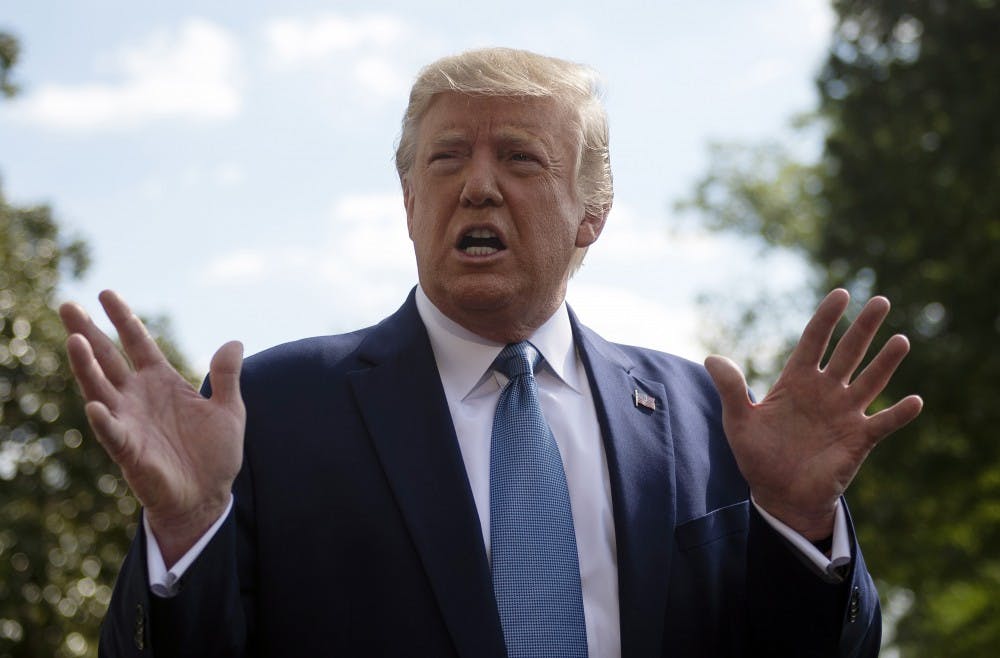Free speech in the U.S. has always been a vital issue, yet many people don’t bat an eye at the immense censorship of online social media.
Social media platforms are owned by large private corporations that currently are able to censor speech at will with no legal protection for freedom of speech and expression online.
Today, social media is how most people communicate and share important information. Silicon Valley oligarchs should not be the deciders of what speech is appropriate.
In the Supreme Court ruling for Packingham v. North Carolina, social media was compared to public spaces where First Amendment protections apply. However, this acknowledgement of a free and open social media was expressly stated as to not bar states from enacting further restrictions as they see fit, implying social media comment moderation is permissible.
This sets a horrendous precedent for free speech and is completely inconsistent with how free speech is treated in the public square. Legislation must be passed to regulate all social media as a public forum with full First Amendment protections for all users because today's social media is the new public square.
This acceptance of online censorship has been so ingrained in society to the point where media networks and politicians often call for bans on supposed “hate speech and misinformation.”
Politicians like Sen. Kamala Harris, D-C.A., call for the banning of President Donald Trump on Twitter for violating the terms of service and for spreading misinformation. Although President Trump is arguably in violation of Twitter’s terms of service, politicians and government figures seem to get a pass.
This standard on speech puts Twitter in a bind because they either would have to be consistent with their terms of service and regulate Trump’s tweets accordingly, or they would have to ban Trump from the platform altogether.
The simplest and fairest solution to the problem is to create a free and open marketplace of ideas and information by allowing all speech online. Allowing private companies to regulate speech online poses the age-old question of “who will watch the watchmen?”
We cannot rely on private companies to act in good faith and regulate speech appropriately because there is no guarantee they will act virtuously.
Social media companies like Twitter and Facebook are not the only websites cracking down on free speech. There has been massive backlash to websites like YouTube and Patreon for removing and demonetizing accounts in an effort to purge hate speech.
Many accounts that have been demonetized on YouTube especially have been shown to not be promoters of hate speech but instead victims of the website’s aggressive and overprotective algorithm for monitoring speech on the platform.
Although the site's censorship claims to have been primarily directed at far-right extremism and hate speech, it is very easy for this argument to be turned on its head to negatively affect all online users.
All the right-wingers affected by the crackdown have to do is argue there is an equivalency of hate and demonization coming from left-wing accounts. Equivalent or not in their use of hate speech, a suggested equivalence is all that is necessary for all online groups to be censored.
Online censorship is a slippery slope because it will never be evenhanded. Not everyone will be completely satisfied with any form of control on speech, likely leading to inequitable implementation of said rules.
For example, on Twitter several prominent left-wingers have already been banned from the platform who have not been promoters of hate speech or threats of violence. People such as Ed and Brian Krassenstein, who were removed for supposedly violating terms of service, have not yet been charged with any crime.
All social media forums need to be free and open because having such wildly varying rules on freedom of speech is inconsistent with all judicial precedent on free expression in the public square. Crackdowns on hate speech in particular are absurd because hate speech is protected under the First Amendment.
It’s time to pressure Congress to apply full First Amendment protections to online users because the current state of affairs is in direct contradiction to American principles on freedom of expression.






